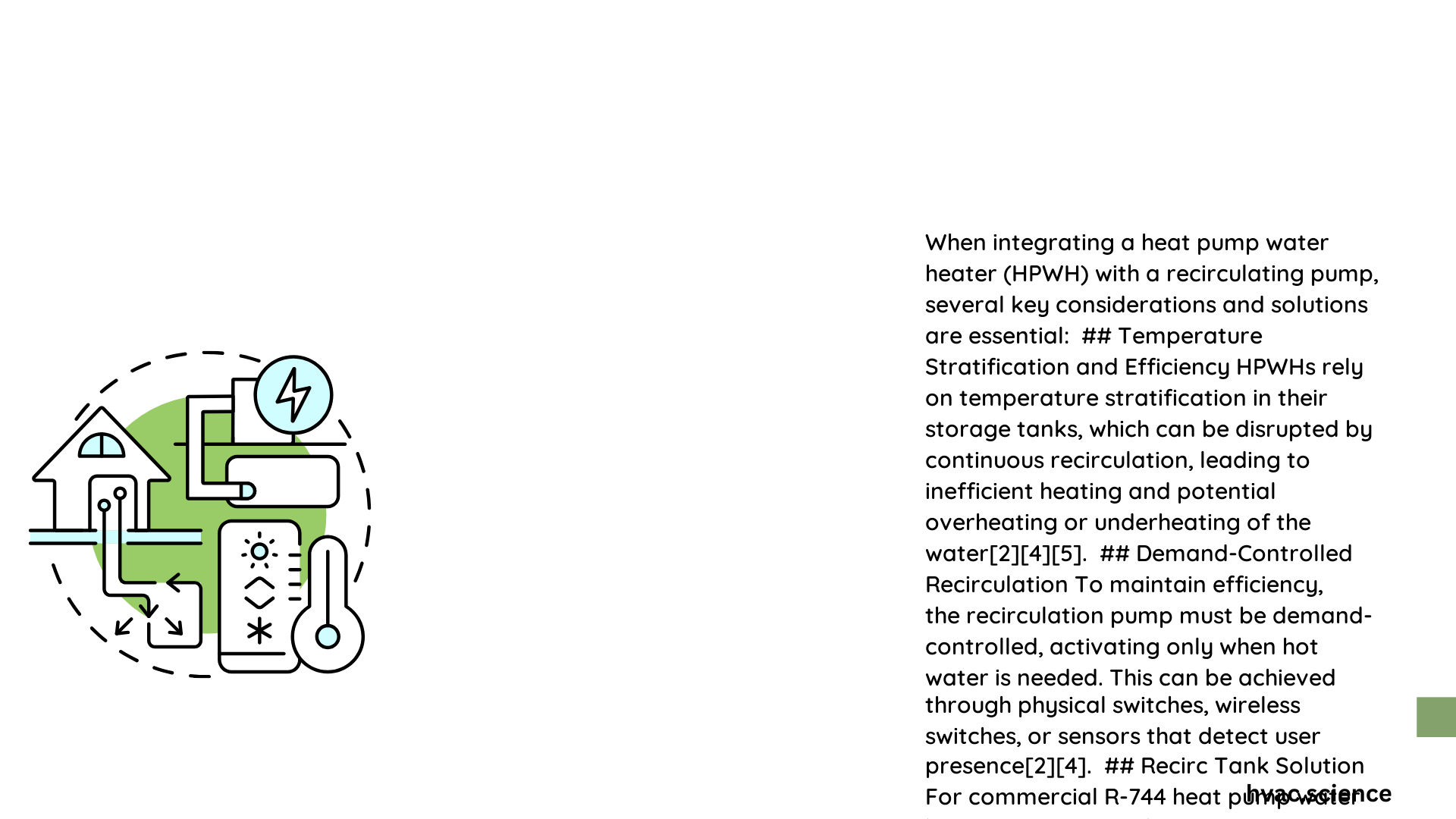Heat pump water heaters with recirculating pumps represent a cutting-edge solution for homeowners seeking maximum energy efficiency and instant hot water delivery. By combining advanced heat pump technology with intelligent water circulation, these systems dramatically reduce energy consumption, provide consistent hot water, and offer significant long-term cost savings compared to traditional water heating methods.
What Makes Heat Pump Water Heaters with Recirculating Pumps Unique?
How Do Heat Pump Water Heaters Work?
Heat pump water heaters operate differently from conventional electric water heaters by extracting heat from surrounding air to warm water, rather than generating heat directly. This process is remarkably efficient, typically producing 3-4 units of heat for every unit of electricity consumed.
Key Technological Components
- Heat Pump Module: Extracts ambient heat
- Refrigeration Cycle: Transfers heat to water
- Recirculating Pump: Ensures rapid hot water distribution
What Are the Primary Benefits?
| Benefit | Performance Impact |
|---|---|
| Energy Efficiency | 50-70% lower energy consumption |
| Operating Cost | $400-$600 annual savings |
| Environmental Impact | Reduced carbon footprint |
How Much Can You Save?
Homeowners can expect substantial financial advantages:
– Initial Investment: $1,500 – $2,500
– Annual Energy Savings: $400 – $600
– Payback Period: 3-5 years
– Potential Lifespan: 10-15 years
Installation Considerations for Heat Pump Water Heaters

Where Should You Install the System?
Ideal installation locations include:
– Utility rooms
– Basements
– Garages
– Areas with consistent ambient temperatures
– Spaces with minimum 1,000 cubic feet of air volume
What Professional Requirements Exist?
- Electrical Requirements
- 240V dedicated circuit
- 30-amp breaker
-
Professional electrical installation
-
Space Considerations
- Minimum 7-foot ceiling height
- Temperature range: 40-90°F
- Good air circulation
How Complex is the Recirculating Pump Integration?
Recirculating pump integration involves:
– Connecting pump to existing plumbing
– Installing temperature sensors
– Configuring circulation schedules
– Ensuring proper water pressure
Maintenance and Long-Term Performance
What Regular Maintenance Is Required?
Monthly Tasks:
– Check temperature settings
– Inspect water connections
– Clean air filters
Quarterly Tasks:
– Verify refrigerant levels
– Test electrical connections
– Examine pump functionality
Annual Professional Inspection:
– Comprehensive system evaluation
– Performance optimization
– Potential component replacement
Advanced Features to Consider
What Smart Technologies Enhance Performance?
Modern heat pump water heaters with recirculating pumps often include:
– Wi-Fi connectivity
– Mobile app controls
– Energy consumption tracking
– Predictive maintenance alerts
– Multiple operating modes
Environmental and Economic Impact
By choosing a heat pump water heater with recirculating pump, homeowners:
– Reduce greenhouse gas emissions
– Lower electricity consumption
– Minimize water waste
– Support sustainable technology adoption
Conclusion
Heat pump water heaters with recirculating pumps represent a sophisticated, eco-friendly solution for modern home water heating. Their advanced technology, combined with intelligent design, offers unparalleled efficiency and comfort.
Recommended Next Steps
- Assess home’s hot water requirements
- Calculate potential energy savings
- Consult professional installer
- Explore available rebates/incentives
